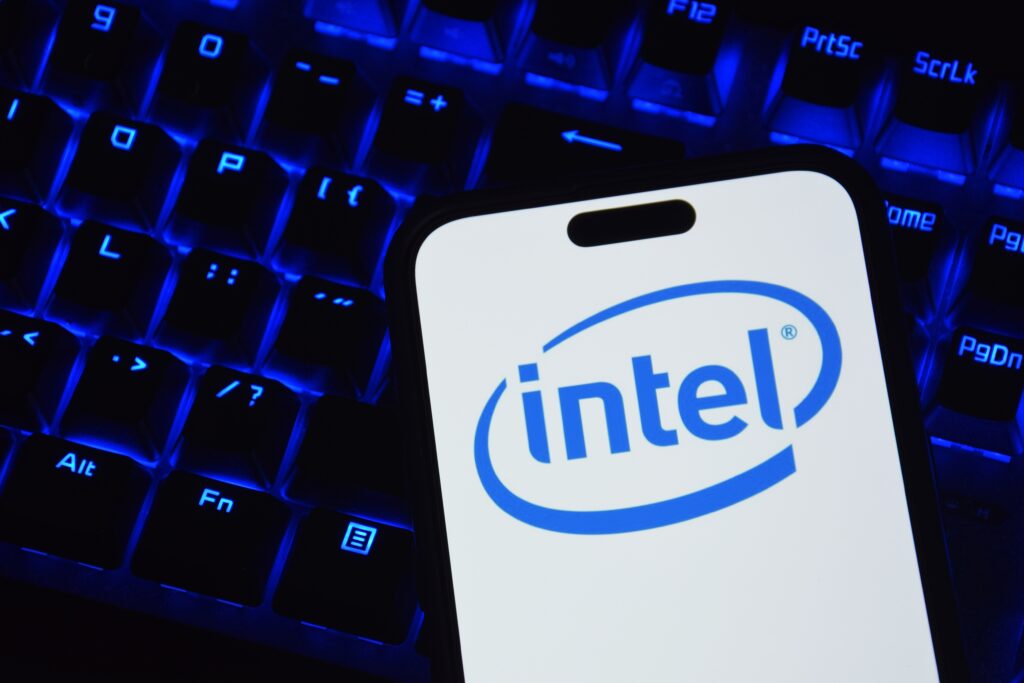US Secretary of Commerce Howard Lutnick announced on Friday that Washington will purchase a 10% stake in Intel.
“This historic agreement strengthens American leadership in semiconductors. It will grow our economy and protect our technological edge,” Lutnick wrote on X. He shared the post with a photo of himself alongside Intel CEO Lip-Bu Tan.
President Donald Trump confirmed the deal earlier in the Oval Office. He called it “a great deal for them.”
Shares of the Santa Clara-based chipmaker gained more than 5% on Friday.
Intel confirmed that the US government will inject $8.9bn (£6.6bn) into its common stock.
Grants redirected into equity
Intel said the money will come from grants that were approved but not yet delivered. That includes funds promised under the CHIPS and Science Act, passed during President Joe Biden’s administration.
“As the only semiconductor company that conducts leading-edge R&D and manufacturing in the US, Intel is fully committed,” Tan said. “We will ensure the world’s most advanced technologies are American made.”
Tan praised Trump’s push for domestic chipmaking. He said it drives “historic investments in an industry vital to security and economic strength.”
The CHIPS Act was created to bring semiconductor production back to the United States.
Intel trails rivals
Intel has struggled to expand production capacity in recent years. It lags behind Nvidia, whose market value has surpassed $4tn while Intel’s remains close to $100bn.
Once a Silicon Valley icon, Intel failed to capitalise on mobile technology. It also lost ground in artificial intelligence, where Nvidia dominates.
Trump attacks Intel chief
Trump recently demanded Tan’s resignation. He accused the Intel CEO of having questionable ties to China.
The president described Tan as “highly conflicted” because of alleged investments in companies linked to the Chinese military.
Tan dismissed the allegations as “misinformation” in a message to employees. He said he had always acted within the law and ethical standards.
Tan, a US citizen, was born in Malaysia and raised in Singapore. American law allows citizens to invest in Chinese companies.
Trump’s criticism followed a letter from Republican Senator Tom Cotton to Intel’s board. Cotton raised doubts about Intel’s ability to safeguard taxpayer money and follow security regulations.
After the row, Tan met Trump at the White House.
White House hails innovative approach
Press Secretary Karoline Leavitt called the move “a creative idea that’s never been done before.”
Reports said the Trump administration also ordered Nvidia and AMD to hand over 15% of revenue from AI chip sales to China.
Jacob Feldgoise, Senior Data Research Analyst at Georgetown University, compared the Intel stake to earlier grant funding.
“It serves the same purpose,” Feldgoise said. “It reflects stronger government involvement in markets to secure economic and security goals. The objective is regaining leadership in semiconductor manufacturing.”
The deal is unusual today but not without precedent.
Earlier examples of state ownership
During the 2008 financial crisis, Washington took a majority stake in General Motors as it neared collapse. The government later exited, recording a $10bn loss.
Feldgoise pointed out that Trump’s administration used a similar approach earlier this year with MP Materials. The Nevada-based company mines rare earth metals.
That agreement faced scrutiny from watchdog groups after it emerged that the Department of Defense relied on a Cold War-era law to bypass procurement rules.


